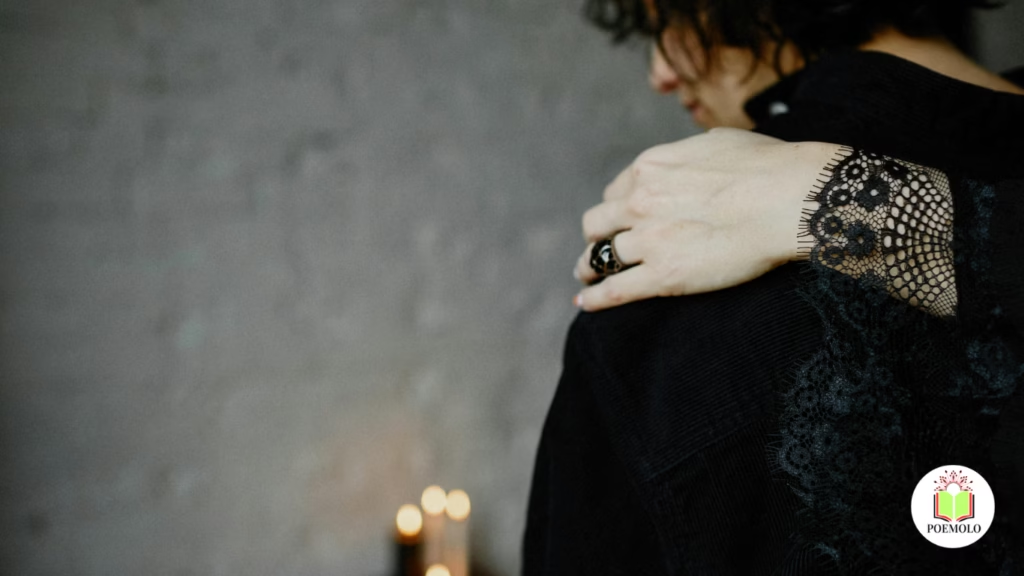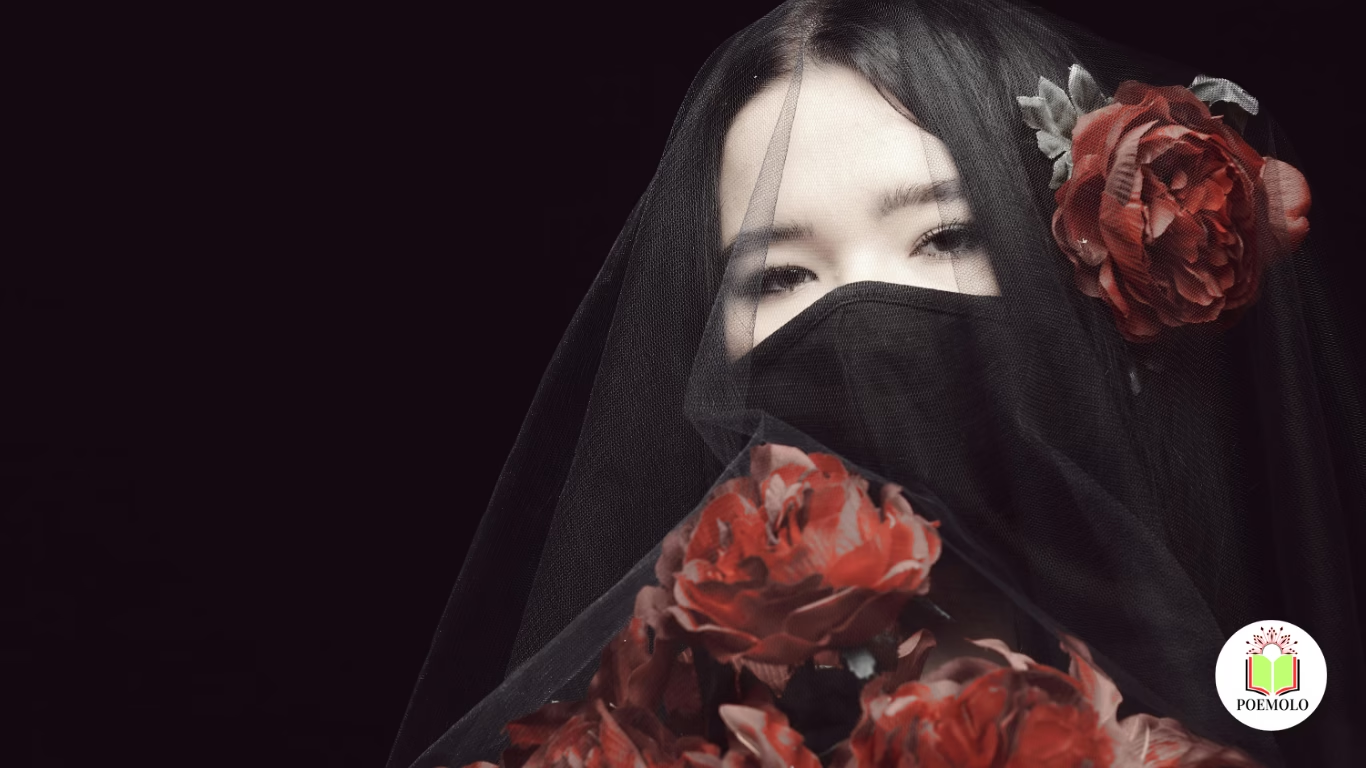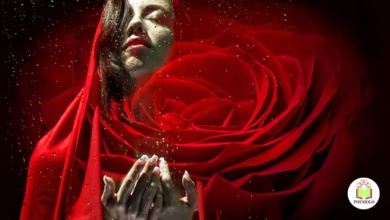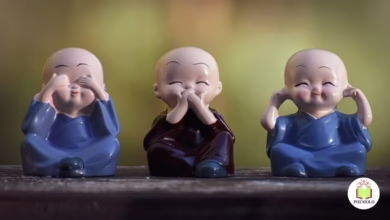Death, as universal and inevitable as it is, has inspired countless poets throughout history to grapple with its profound implications. In the realm of sad poems about death, the voices of Black poets stand out with unique perspectives shaped by both personal and collective experiences.
From the painful sorrow of losing loved ones to the cultural context of loss in the African-American community, Black poets have given us some of the most emotionally charged, haunting, and reflective pieces of writing on this theme.
For centuries, African-American poets have used their words to explore grief, loss, and death, weaving stories that not only reflect personal suffering but also the ongoing struggles of their communities.
These poets bring depth, richness, and complexity to the conversation around death, mourning, and remembrance. The sad poems about death by Black poets are deeply personal and political, often resonating with readers from all walks of life.
This article delves into some of the most powerful sad poems about death written by prominent Black poets. It explores how their works reflect both individual and collective pain while shedding light on their literary styles, thematic concerns, and the legacies they have left behind.
Whether you are an avid reader of poetry, a student of African-American literature, or someone experiencing loss, these poems will resonate with you on a deeply emotional level.
The Power of Sad Poems about Death by Black Poets

Sad poems about death often explore the darkest and most complex feelings associated with loss. For Black poets, these emotions are often compounded by historical and social factors. Throughout history, African Americans have had to contend with slavery, racism, and injustice—issues that have shaped their cultural perspectives on life and death.
As a result, the work of Black poets on the theme of death tends to reflect not only personal grief but also collective mourning for the community’s history.
The impact of death is profound in these poems, and many of these poets use their verses to cope with the deep pain of losing a loved one. But they also explore the societal context of death—such as the loss of lives in the fight for civil rights, the ongoing fight for racial equality, and the trauma inflicted by violence.
In sad poems about death, Black poets often blend personal sorrow with political commentary, creating work that speaks to the soul of the individual while resonating deeply with the struggles of their community.
Echoes of the Past
When death comes calling, soft as night,
Whispers of a love that’s taken flight,
The heart it breaks, but still it beats,
In memories’ halls where shadows meet.
A mother’s voice, a father’s smile,
Now distant echoes, gone a while,
But in the silence, they still remain,
A love undying, sweet with pain.
The streets remember their footsteps bold,
In the city’s heart, their stories told.
Yet in the quiet, all that’s left—
Is the shadow of their lives bereft.
For in this grief, we find our strength,
Our roots grow deeper, go the length
Of time, of tears, of struggles known,
In death’s embrace, we’re not alone.
We rise, we stand, through nights so long,
Our voices echo in a song.
For death can take, but it can’t bind,
The legacies that hearts enshrine.
Here’s an analysis table that breaks down key elements of the poem “Echoes of the Past” with references to the themes commonly found in sad poems about death by Black poets:
| Poetic Element | Explanation | Connection to Black Poetic Tradition |
| Theme of Death | The poem deals with the inevitability of death and the grief that follows, recognizing that loss is a part of life. | Black poets, such as Langston Hughes and Maya Angelou, often grapple with the concept of death, both personal and cultural, confronting the pain while also finding ways to heal or transcend. |
| Legacy of Loved Ones | The poem highlights the lasting impact of loved ones even after their physical death, as their stories live on. | Black poets frequently explore how death doesn’t erase the influence of the deceased, but instead strengthens the resolve and identity of the living. Claude McKay and James Weldon Johnson often evoke the memory of ancestors to emphasize cultural legacy. |
| Memory and Grief | The poem emphasizes the powerful hold that memories of lost loved ones maintain on the living. | Gwendolyn Brooks and Lucille Clifton explore the emotional weight of memory and how grief is experienced in the community, often blending personal mourning with collective loss. |
| Resilience and Strength | The poem reflects a sense of resilience in the face of grief, as the speaker stands firm despite loss. | A key theme in Black poetry, particularly in the works of Maya Angelou and Nikki Giovanni, is the strength to rise and persist despite sorrow, using grief as a motivator for empowerment. |
| Community and Shared Grief | The poem reflects how the community collectively feels the loss, with shared memory binding individuals together. | Sad poems about death by Black poets often explore communal mourning, where death is not only a personal loss but also a collective experience. Poets like Maya Angelou reflect on how the death of individuals impacts the broader community, especially within the context of cultural and racial struggles. |
| Spiritual and Cultural Context | The poem subtly suggests that the spirits of the departed continue to watch over the living, linking to themes of spiritual continuity. | Many Black poets reflect on death within a larger spiritual context, emphasizing the connection between ancestors and the living. Langston Hughes and Zora Neale Hurston often invoke spirituality and ancestral presence in their reflections on death. |
| Eternal Love and Connection | The poem concludes with the notion that love transcends death, illustrating the unbroken bond between the living and the departed. | Sad poems about death in the Black poetic tradition often emphasize that love is eternal, as seen in the works of poets like Nikki Giovanni, who suggests that the love and connection b |
Famous Black Poets and Their Reflections on Death
Several well-known Black poets have left us with powerful works exploring sad poems about death. These poets have made significant contributions to literature by not only addressing death as a theme but also integrating it into larger conversations about race, history, and social justice.
1. Langston Hughes: Embracing Death as Part of the Journey
Langston Hughes is one of the most prominent Black poets whose work addresses themes of death. Known for his contributions to the Harlem Renaissance, Hughes’s poetry often explored the struggles of African Americans living in a racially divided society.
His poem “The Negro Speaks of Rivers” is one of his most well-known works, but his reflections on death in poems such as “I, Too” and “The Death of the Hired Man” convey a deep understanding of life’s cyclical nature and the importance of honoring those who have passed.
In “The Death of the Hired Man”, Hughes reflects on the life of a man who has passed away and the sense of grief and loss felt by those left behind. The poem delves into the complex emotions of the living—particularly the nuances of memory, forgiveness, and understanding.
While the poem doesn’t directly tackle the theme of racial death, it explores themes of mortality and the fragility of life. Hughes’s voice is comforting yet melancholic, offering readers a poignant reflection on death’s inevitable place in the human experience.
Hughes’s poetry about death embodies the human connection to the loss of loved ones, but it also speaks to the shared understanding of cultural memory and the African-American experience of resilience. His approach to death is rooted in an awareness that it is but a part of the longer journey of life—often one filled with both suffering and hope.
2. Maya Angelou: Grief and Strength in the Face of Loss
Maya Angelou, a celebrated Black poet and civil rights activist, also crafted deeply emotional poems about death. Known for her works such as “I Know Why the Caged Bird Sings” and “Still I Rise,” Angelou’s poetry often explores themes of identity, resilience, and loss.
In her poem “When I Think of Death,” Angelou confronts the idea of mortality with both sadness and strength. She speaks directly to the inevitability of death while also highlighting the importance of living with purpose.
Angelou’s work in this regard is a reflection of the African-American experience—she draws from her own personal struggles, as well as the collective struggle for survival and dignity in the face of racism and oppression.
In poems like “In Search of My Mother’s Gardens,” Angelou mourns the loss of her mother, reflecting on her death not just as a personal loss, but as part of the larger cycle of life and death that transcends generations.
For Angelou, death is both a personal tragedy and a cultural passage. It marks the end of an era, the loss of a generation, and yet it also serves as a moment for rebirth—a recurring theme throughout Angelou’s works.
Her poetry on death becomes an invitation to find strength in the midst of grief, echoing the resilience and dignity that characterized the Black community in the face of continued suffering.
3. Nikki Giovanni: Grief and Healing
Another powerhouse in African-American literature is Nikki Giovanni. Her poetry addresses a wide range of topics, from social justice to personal loss. Giovanni’s poem “The Death of a Friend“ is a raw and emotional piece that explores the deep grief of losing someone close. Giovanni’s ability to write with vulnerability, using simple yet powerful language, makes her sad poems about death particularly poignant.
Giovanni’s ability to embrace grief while also seeking healing makes her an important voice in African-American poetry. She often contrasts sadness with a message of hope, demonstrating that death, while painful, can be a powerful catalyst for reflection and growth.
Through her writings, Giovanni explores the intersection of personal loss and social movements. As a poet who has been deeply involved in the civil rights movement, her grief at the passing of significant individuals reflects the collective loss felt by the entire community.
Giovanni’s writing acts as both catharsis and call to action, reminding readers that while mourning is inevitable, it should never overshadow the ongoing fight for justice and equality.
Thematic Elements of Sad Poems About Death by Black Poets

While each Black poet brings their own unique perspective to the theme of death, several recurring themes can be found throughout their works. These include:
1. The Fight for Justice and the Legacy of Loss
In many sad poems about death, there is a deep sense of injustice tied to the loss. For African-American poets, death often cannot be separated from the history of violence and systemic oppression their communities have faced. Poems about death may mourn not just a life lost but also the struggle of those whose lives were taken too soon due to racism, injustice, and violence.
Poets like Claude McKay and Gwendolyn Brooks speak to the racialized experience of death, illustrating the weight of loss in a world that is often indifferent to the lives of Black people. These poets’ works encourage us to reflect on how historical contexts—like slavery, segregation, and police violence—continue to shape how we mourn and process death.
For example, in McKay’s “If We Must Die,” he frames death not just as an individual tragedy, but as a communal resistance to violence. His imagery transforms death into a defiant act, honoring the deceased by rejecting the oppression that sought to diminish their humanity. This approach speaks to the Black experience of mourning those lost to racial violence while also finding ways to celebrate their legacy and resist the forces that sought to erase them.
2. Personal Grief and Collective Mourning
Many Black poets use death as a way of honoring their loved ones, as well as their cultural and spiritual heritage. Sad poems about death often provide a space for personal mourning, while also speaking to the collective grief experienced by the African-American community. These poems may reflect on the loss of family members, friends, or iconic figures whose contributions to social justice and culture have shaped the world.
The deep connection between the individual and the community is often explored in works like those of James Weldon Johnson, whose elegiac poems like “Lift Every Voice and Sing” carry a message of resilience in the face of suffering and loss.
Johnson’s poetry emphasizes the collective grief of a people who have endured centuries of injustice, yet his work calls for action and remembrance. It’s a tribute not just to individuals but to the spirit of survival and unity that binds communities together.
3. The Celebration of Life
While sad poems about death by Black poets often focus on grief, there is also an element of celebration in many of these works. Death is seen not as an end, but as a transition—a part of the cycle of life. In this way, many poems view death as a moment to reflect on the importance of living fully, honoring those who have passed, and continuing the work of justice and healing.
This theme is especially present in the works of poets like Lucille Clifton and Audre Lorde, who see death as a moment to reflect on life’s meaning, rather than a reason to succumb to despair.
In Lorde’s poem, “A Litany for Survival,” she writes not just about death but about the ways in which survival itself is an act of defiance. Through her work, Lorde reminds us that living through adversity, and even death, is a way of affirming one’s existence and dignity.
Conclusion
The sad poems about death written by Black poets serve as powerful, poignant tributes to loss, grief, and the human experience. Through their words, these poets have created a space where death is explored with both sorrow and resilience, offering readers not only an understanding of personal loss but also an acknowledgment of the broader social and cultural context in which death occurs. These poems offer comfort, insight, and a call to continue the fight for justice, remembrance, and healing.
By honoring those who have passed, Black poets continue to shape the literary landscape, reminding us all of the importance of community, legacy, and the power of words to transcend time and space.





